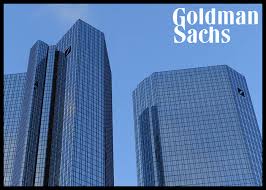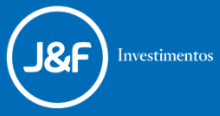2020 Year in Review: Interesting Enforcement Actions (Part III of IV)

DOJ and the SEC each had a great year in FCPA enforcement. But it is important to acknowledge that the blockbuster case, Goldman Sachs, was the driver of this successful year.
Goldman Sachs
Goldman Sachs paid DOJ and the SEC nearly $4 billion in fines and disgorgement. DOJ has reccivered nearly $1` billion in assets through its forfeiture initiative.
Goldman Sachs was a massive and impressive case. No one can question that the Goldman Sachs case was rightfully prosecuted under the FCPA for its massive and egregious bribery schemes involving the Malaysia 1MDB fund.
With the apparent indifference (or possibly knowledge) of senior corporate leaders, Goldman Sachs, with the assistance of a notoriously corrupt third party, Jho Low, paid over $1.6 billion in bribes to Malaysia and Abu Dhabi officials to secure three valuable underwriting contracts worth $6.5 billion, from which Goldman Sachs earned $600 million in fees.
DOJ has indicted three individuals related to the Goldman Sachs scandal: Time Leissner, Head of Asia, who plead guilty and is cooperating; Roger Ng, who is scheduled for trial next year; and Jho Low, who is a fugitive.
At its core, the Goldman Sachs scandal represents a fundamental failure of its corporate culture and commitment to ethics and compliance. At every turn, business and money ecliposed adherence to ethics and compliance requirements. In the end, this was a tone and a message communicated and reinforced by Goldman Sachs’ leadership.
Other Important Cases

Airbus SE: If not for the Goldman Sachs case, the Airbus prosecution would be the headline FCPA case for 2020. The Airbus case was the result of an international coordinated effort by US, UK and French prosecutors. Airbus paid over $4 billion to the US, UK and French law enforcement for a multi-year bribery scheme, and $582 million to the US for ITAR violations. For over seven years, Airbus paid bribes through third parties in China to secure valuable commercial airplane sales to Chinese state-owned airlines. Airbus’ compliance and legal functions, while robust, remained silent in a culture dominated to securing business at any cost.
Herbalife: DOJ secured a 3-year DPA in exchange for $55 million and the SEC secured a $67 million settlement. Last year, DOJ indicted two China managers, Jerry Li and Mary Yang, who have not been apprehended, for FCPA charges. Over a ten-year period, Herbalife paid Chinese government officials over $25 million in expense reimbursements for bribes, hospitality and gifts to secure direct selling licenses, prevent enforcement actions and avoid negative publicity in government-owned enterprises. A Herbalife executive in Los Angeles directed the China manager to falsify expense reports to circumvent existing policies. Notwithstanding audit reports to the Board and senior management that revealed significant unexplained payments to Chinese officials, Herbalife’s board, Internal Auditor and senior management ignored obvious indicators of bribery.
Novartis/Alcon: DOJ secured a $234 million penalty from Novartis and $8.9 million from Alcon (sold by Novartis in 2019) for bribery conduct in Greece and Vietnam, and the SEC secured a total penalty of $112 million for bribery conduct in Greece, Vietnam, South Korea and China. In Greece, between 2012 and 2015, Novartis paid approximately $6000 per physician and foreign official to travel to international medical congresses in order to reward or pressure physicians to prescribe Novartis products. In Vietnam, Novartis paid bribes through a third party distributor to pay physicians for using Alcon cataract products.

J&F Investimentos: DOJ secured a fine of $128 million; the SEC earned a $27 million penalty and two individual settlements from J&F owners, the Batista brothers, of $550k each. J&F paid millions of dollars in bribes to officials at Brazil-owned state banks for important business loans needed to acquire companies. J&F already settled massive bribery case with Brazil for $3.2 billion by JBS meat company. J&F paid bribes through complex layers of shell companies and bank payments involving a New York-based global bank.
Vitol Trading: DOJ secured a $135 million settlement (minus $45 million credit for Brazil payment) and $28,7 CFTC settlement. Vitol, an energy trading company, paid $10 million in bribes for market intelligence and bid information from Petrobras. Bribes were funded through third parties’ sham consulting contracts, fake invoices and intermediaries.















